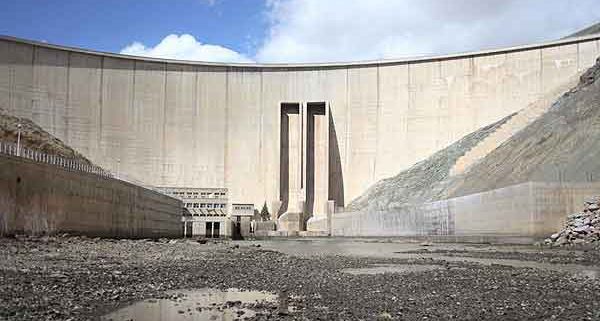Having referred to the remarks made by the Turkish Ambassador to Baghdad who had rejected his respective country’s role in cutting the water to Iraq, and had said Iraq should have done its task properly, Rahman Ghahremanpour in an interview with the site of Strategic Council on Foreign Relations spelled out:” Despite the issue of the water crisis in the Middle East had already been raised by various theoreticians long time ago, but it was not taken so seriously as today. Today, water as an issue has turned into a vital one, and as environmental crises like water are more tangible, the issue is becoming a security threat for countries”.
Having reminded that the Middle East is engaged in the issue more than other regions of the world, and according to some forecasts within the coming 20 years 25% of the Middle East will not be cultivable, he added:” Based on this, because of environmental crises, water, and soil contamination as well as air pollution, a part of the existing towns and cities will become inhabitable. Now, in North Africa too, we witness tensions among Egypt, the Sudan, and Ethiopia over Al-Nihza Dam. Even in cases, Egypt has threatened to launch a military invasion in order to prevent the construction of the Dam”.
The Necessity to Set up International & Regional Mechanisms to Sort out Water Crisis
The expert in international affairs stated that a new glance at the crisis should find its new requirements. He said:” New international and regional mechanisms should be considered from this new aspect. Moreover, international community and countries should admit that water issue is an issue related to (their) national security and it must be looked at with new approach and instruments”.
Ghahremanpour emphasized:” in the new approach, even those countries that believe they are not suffering from water shortage and environmental problems, will inevitably be impressed by environmental crises of the region in long term because of their presence in the common eco-system with other countries. As it happened a month ago when there were dust storms in Iran, Iraq, and Syria and we witnessed the same happened in East Turkey as well”.
Having stated that our region needs to outline a new plan and framework to address water issues and environmental crises from countries’ interests and national security point of view as well as collective interests of human beings, he continued:” from a decade ago, Turkey has come to the conclusion that in the present international atmosphere, it can turn to a medium emerging power at the same level of countries like Indonesia, South Korea, South Africa, and Brazil. Within the very same framework, it believes that some approaches like dam construction and expansion of industrial agriculture and more importantly, having bargain power versus its neighbors may remove a part of threats against it”.
Having stated that Turkey claims the dams that were constructed along its borders with Syria are obstacles to curbing the expansion of PKK clout, he said:” these are not acceptable justifications; the truth is that without declaring publically, Turkey makes effort to exploit water as a leverage in its relations with regional countries”.
Having stressed that if such an approach turns to become a procedure and a model for other countries to use, then there will be serious security problems, he continued:” the issue must also be studied and addressed at international organizations within a multi-layer approach. Unfortunately, there are serious weaknesses and shortages in water international laws, on upstream and downstream rivers as well as the share of each country. Water crisis should be included in the global agenda and must be discussed at international specialized organizations such as the United Nations and agreement must be made on international law that govern them”.
Ghahremanpour added:” the issue must be turned to become an important one for the regional countries through outlining bilateral and multilateral consultative mechanisms in order to reach a regional solution. Unfortunately, since a long time ago, there has never been a strong regional organization to include issues like environmental and water crises in its agenda; regional, military and ethnical competitions have never provided such an opportunity”.
Consequences of Environmental Crises for Turkey
The analyst of international affairs stressed:” Consequences of environmental crises of the region is not just confined to other countries (beyond the region). Turkey will also be engaged gradually. Now, the gradual drying of some lagoons in Istanbul is becoming a serious issue and the dust problem in Southern Turkey and in Kurdish inhabited regions is increasing. Two weeks ago, in early July 2022, we witnessed repeated summer floods in Trabzon. Therefore, damaging the environment and wildfires in Turkey’s forests is also a serious issue”.
Ghahremanpour added:” this is not true that if Turkey does not accept the necessity to attend in the negotiations, it will be spared from damages caused by environmental crisis. If Turkey is not convinced to accompany, mechanisms should be outlined and implemented in a way that enjoys having a backing, based on which countries reach agreements with each other. This is a crisis that all countries will grapple with. It is necessary that regional countries, in cooperation with each other, will reach a logical solution that maintains collective interests.










0 Comments